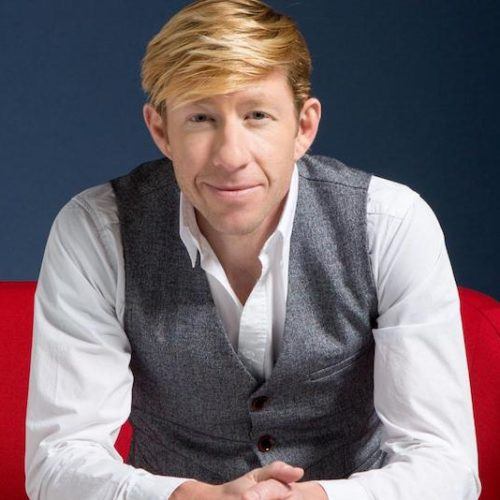Check out more content with sleep expert, Matthew Walker, Ph.D.:
- (April 1, 2019) Part I of III: Dangers of poor sleep, Alzheimer’s risk, mental health, and memory
- (April 8, 2019) Part II of III: Heart disease, cancer, sexual function, and sleep disruption
- (April 15, 2019) Part III of III: The penetrating effects of poor sleep from metabolism to genetics
- (June 17, 2019) AMA #1: Strategies for sleeping more and sleeping better
- (October 28, 2019) AMA #2: short sleep mutants, optimal sleep environment, & sleep apnea
- (August 31, 2020) Sleep & Covid-19: Sleep and immune function, chronotypes, and hygiene tips
- (September 7, 2020) AMA #3: Fasting, gut health, blue light, caffeine, REM sleep, and more
In this episode, sleep expert Matthew Walker returns by popular demand to dive deeper into many sleep-related topics, starting with what we’ve learned about sleep through the lens of the COVID-19 pandemic and how sleep impacts the immune system. He then covers topics such as how dreaming affects emotional health, the different sleep chronotypes, the best sleep hygiene tips, and the pros and cons of napping. Matthew finishes by addressing several of the errors that readers have pointed out in his book, Why We Sleep.
Subscribe on: APPLE PODCASTS | RSS | GOOGLE | OVERCAST | STITCHER
We discuss:
- Three ways that the coronavirus pandemic has impacted sleep [3:30];
- The importance of dreaming for emotional health, and how the coronavirus pandemic has increased dreaming [11:45];
- The impact of alcohol consumption on sleep quality and stress levels [20:00];
- Sleep’s impact on the immune system, and implications for a future COVID-19 vaccine [27:45];
- What determines how much deep sleep and REM sleep you need? [36:30];
- Pros and cons of napping, and insights from the sleep habits of hunter-gatherer tribes [42:15];
- Sleep hygiene, wind-down routine, and tips for better sleep [56:45];
- Understanding sleep chronotypes and how knowing yours could help you [1:06:00];
- Night terrors in kids—what they are and why they happen [1:16:30];
- Addressing errors found in Matt’s book, Why We Sleep [1:20:45]; and
- More.
Get Peter’s expertise in your inbox 100% free.
Sign up to receive An Introductory Guide to Longevity by Peter Attia, weekly longevity-focused articles, and new podcast announcements.
Three ways that the coronavirus pandemic has impacted sleep [3:30]
The COVID-19 pandemic has impacted sleep in 3 ways:
- The amount that people are sleeping
- The timing of the sleep
- Dreaming
1—Amount of sleep:
A sleep tracking company that released data on ~68,000 individuals
- They found total sleep time had increased across the entire country by ~20%
Two peer-reviewed papers from Current Biology added more nuance—
1-Total amount of sleep had increased by 15 minutes
2-Social “jet lag” had decreased
- Meaning, the difference between the sleep that you’re getting during the week versus the weekend
- Many people are sleeping less due to obligations during the week (getting kids to school, being at work on time, getting home late after a long commute, etc.)
- And then they sleep more on the weekends to “make up” for the lost sleep
- Since COVID-19 began, people are sleeping more during the week without those same week-day obligations and their “sleep opportunity” has increased
3-Subjective sleep quality had decreased in a subset of people
What Matt thinks is probably happening across the country:
- There’s going to be at least two different clouds of data
- i) people for whom sleep time AND quality both increased, and
- ii) people for whom sleep became shorter and worse
- Why? ⇒ They’ve either lost their job, may lose their job, or just in general they have a great deal of anxiety because of COVID.
2—Timing of sleep:
- This study showed people were going to bed about 30 minutes later and waking up about 50 minutes later the next morning
- Matt says “night owls are being allowed to be much more owl-like and sleeping in harmony with their chronotype.”
3—Dreaming: People have been reporting having more dreams since the pandemic began
(more on this in the following section)
The importance of dreaming for emotional health, and how the coronavirus pandemic has increased dreaming [11:45]
How has dreaming been impacted by the coronavirus pandemic?
- Dreaming has increased
- Two different reasons—
{end of show notes preview}
Would you like access to extensive show notes and references for this podcast (and more)?
Check out this post to see an example of what the substantial show notes look like. Become a member today to get access.

Matthew Walker, Ph.D.
Dr. Walker earned his degree in neuroscience from Nottingham University, UK, and his PhD in neurophysiology from the Medical Research Council, London, UK. He subsequently became a Professor of Psychiatry at Harvard Medical School, USA. Currently, he is Professor of Neuroscience and Psychology at the University of California, Berkeley, USA. He is also the founder and director of the Center for Human Sleep Science.
Dr. Walker’s research examines the impact of sleep on human health and disease. He has received numerous funding awards from the National Science Foundation and the National Institutes of Health, and is a Kavli Fellow of the National Academy of Sciences.
Dr. Walker is the author of the International Bestseller, Why We Sleep. It has a singular goal: to reunite humanity with sleep.
In addition, Dr. Walker is an internationally recognized speaker, a successful entrepreneur, and a Sleep Scientist for Google.
[sleepdiplomat.com]
Twitter: @sleepdiplomat
Center for Human Sleep Science: https://www.humansleepscience.com/
Matthew’s publications: https://www.humansleepscience.com/p-u-b-l-i-c-a-t-i-o-n-s


